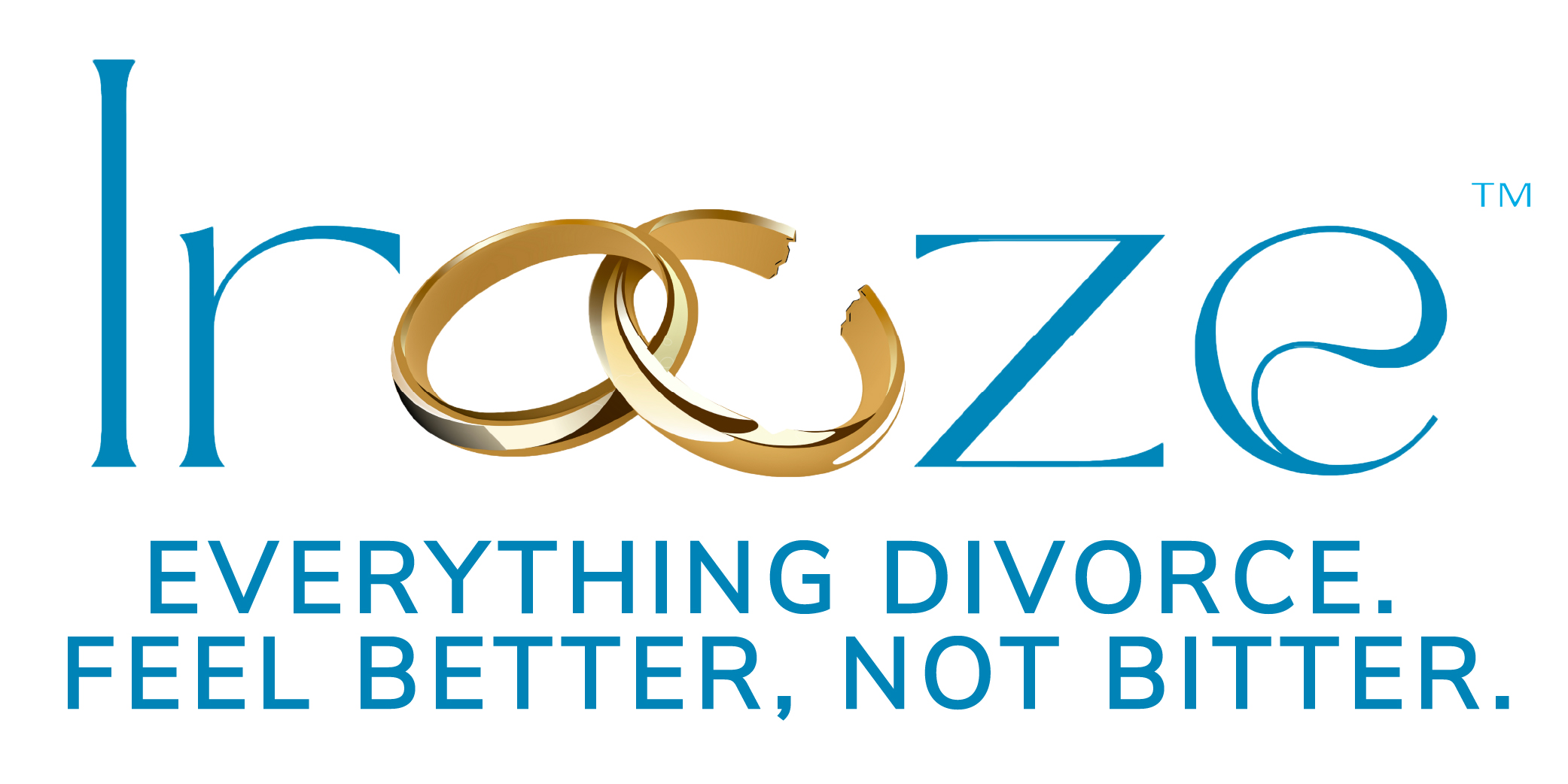“Effectively” Communicate With a High-Conflict Personality During Divorce
When you’re going through a divorce, the impact can be difficult enough to deal with, especially with children involved. Facing the new reality of a new, different structure to your life, living and doing things on your own, being single, raising your children as a co-parent, and juggling new responsibilities and schedules, along with possibly looking for a new place to live, deciding how to divide assets, and more, are all more than enough to leave you reeling. Trying to navigate all the new logistics along with any emotions you’re processing as well can feel overwhelming. When you have to do it while dealing with a high conflict personality, it can compound all the difficulties you are facing.
In this article, we’ll look at how you can empower yourself and manage co-parenting and communicating with a high-conflict ex-spouse to bring some sanity to your life.
Break the Toxic Communication Cycle With a High-Conflict Ex
While the heightened emotions of a divorce can cause some people to behave out of character, their anger or sadness becomes amplified and leads them to behave more aggressively, less-cooperatively and generally less-agreeably. But let’s be honest. If you’re dealing with a high-conflict ex-spouse, a lot of this behavior won’t be new to you; there will be a history there. If you dealt with it while you were married, you can expect to deal with it when you’re divorcing. And you may have gotten caught up in a dysfunctional pattern, getting involved in intense arguments, feeling attacked and defensive and perpetuating the cycle.
Typically, during a divorce with a high-conflict person, you’ll experience a barrage of texts or emails, or conversations that are accusatory, denigrating and manipulative to make you feel off balance at every turn. However, here’s something essential for you to know – you don’t have to participate in that anymore. You don’t have to reactively respond to everything. A reactive knee-jerk response is participating, and it’s keeping the momentum going for your ex-husband or wife to continue to react back to you with even more of the same.
When we’re talking about situations of co-parenting, an important shift for your approach is to keep all and any communication strictly about the children, their schedules and their needs.
Stop Reacting, Start Responding: Regain Emotional Control
Avoid any reactions to emotional manipulation or attack, no matter how much it upsets you. Instead, focus on responding, in a calm manner, displaying that their action did not affect you. It’s easier said than done, but with focus and practice, you’ll see how much more peaceful your own mental state will become when you institute these boundaries.
Keep reading to see how to put that into practice to benefit your emotional well-being and to break the pattern of being sucked into conflict on a continual basis.
If you’re still in the process of deciding whether divorce is truly the right step for you, this guide can help you navigate that complex decision with clarity.
How to Set Boundaries With a High-Conflict Co-Parent (and Make Them Stick)

A high-conflict personality has no boundaries and will resist any boundaries you try to impose on them. They will see it as an attempt to challenge them and they will try to skirt around them at every opportunity. It’s up to you to remain firm in maintaining the new standard. What I’m suggesting is that you set the boundaries on them by establishing for yourself that you will allow yourself to do when you’re communicating with them.
The main principles to remember when implementing this approach are that the only thing the two of you need to discuss are details relating to the care, well-being and routines of the children. Forgive me for the harshness of this statement, but your marriage and relationship are over, so anything else that refers to either of you is irrelevant at this point. A reactive response to anything they may say to you, any insults, accusations, emotional pokes and digs, is not going to get you anywhere.
Moreover, not engaging in these kinds of fruitless interactions are going to go a long way toward safeguarding your emotional and mental well-being. When you get texts or emails with inflammatory comments, ask yourself “What would be the point of my reactive response? What do I have to prove?” Invariably, you’ll realize that there is nothing for you to prove, and that reacting to provocations will only serve your ego, but won’t contribute to anything productive.
Here are some guidelines to help keep you on track when implementing this new approach:
- Keep things in writing as much as possible: Documenting your communications is important, for helping to keep your ex-spouse at an arm’s length and also for keeping records for their behavior and attitude toward you and for evidence of your behavior toward them (because we know they are likely to either exaggerate or lie about the things you say). It’s not necessarily a guarantee that a judge will be interested in reading your communication but it’s a good idea to keep it in your back pocket if simply for demonstrating the contrast between their volatile and provocative communication and your steady, rational responses that focus solely on the children.
Take a few minutes to watch the other helpful videos prepared by Hon. Chandlee J. Kuhn, Ret.,
- Follow “BIFF”: BIFF is a guideline as to how to respond, when necessary, in order to help maintain the boundaries:
- Brief: Keep it as brief as possible, don’t engage or say anything that isn’t absolutely necessary.
- Informative: Keep the communication informative, no emotions, no opinions, strictly what is relevant to the topic. Also, sometimes, no response is just as effective.
- Firm: Keep your language to firm statements that don’t invite any further negotiation or discussion, and end the conversation so that it doesn’t leave the door open for any negative responses.
- Friendly (or Cordial): Be polite, cordial, and civil in your communications. No insults, no derogatory comments or hostile language that will just be an excuse for them to unleash on you.
- Establish a response time: Remember that you don’t have to reply immediately to every text or email. In fact, it’s better for you to take some time before you respond, it will give you time to breathe, reflect and detach from any emotional responses that get triggered when you first receive the message. Giving yourself time will allow for clarity and calm when you do respond. Decide on a time frame that you will stick to before you reply, even as long as 24-72 hours.
- Be Present: In line with the new response time that you will commit to, if you are with your children, or your family and friends, don’t allow incoming messages to divert you from your enjoyment with your loved ones.
Check out this resource for further understanding how to manage communications with a hostile ex-spouse.
Why Shifting Expectations Is Key When Divorcing a High-Conflict Personality

“You can’t change how people treat you or what they say about you. All you can do is change how you react to it.” Nicky Gumbel
The best way to empower yourself in this situation is for you to understand and accept that no matter how much you argue, no matter how much you try to prove about yourself or to make a point, high-conflict individuals will never agree with you or see your side of the story. They will always deflect, oppose, manipulate and find every opportunity to tear you down.
It’s a radical acceptance, or even a surrender, to the reality that may be hard to swallow but doing so will dramatically reduce your frustration and aggravations and save you from wasting time and energy in these endless loops. You may even have to accept that you will not be able to fully co-parent with them, but rather parallel-parent, where you might have separate birthday parties, go to parent-teacher interviews separately, etc. It’s not ideal, but in these situations, it is better for your well-being and for the well-being of your children to reduce the incidences of conflict between the two of you.
Reclaim Your Power by Letting Go of Unrealistic Expectations
Once you can accept the fact that you can not change them, you will reclaim your power, and gain the clarity around what you can change, which is you and your response. In addition, you will gain perspective on what is truly important so that those interactions will soon take up less space in your life.
Shift your expectations around what you will get out of them: deal with the person that they show you they are rather than what you wish they would be, or who you think they could be.
Learning to manage your emotional triggers is just as important as setting boundaries from this article on moving from overwhelm to emotional stability offers powerful tips to help you stay grounded.
Taking Back Control: How Shifting Your Response Changes Everything
Release those expectations and embrace the reality. You now have some guidelines as to actions you can take to implement some boundaries and reduce the conflict that comes with co-parenting with a high-conflict individual.
“I have personally experienced the success that comes with making these shifts in my own conduct. After falling into the same old toxic, high-conflict patterns with my ex-husband in the first 2-3 years after our divorce while co-parenting our young children, I finally realized that I was the one who had to change my responses.
Once I did that, everything changed. It’s impossible to change another person, but you can choose how you allow them to impact you and engage with you. Often, once they see there is no fuel to feed their fire, things will settle down. And even if they don’t, at the very least you will have the tools in place to keep their destructive flames at bay.” By Talya Pardo, Anger Management Coach
If you’re struggling with dealing with a high-conflict ex-spouse and are looking for guidance and support, take the Self-Assessment Quiz which will entitle you to a free Strategy Call with a Divorce Specialist who will work with you to create a plan for breaking out of the conflict cycles. The Irooze.com Divorce Directory hosts listings of a wide range of vetted divorce professionals, including High-Conflict Coaches and Anger Management Specialists for you to work with.
Co Authors
Talya Pardo, Anger Management Coach
Disclaimer:
The information provided in this article is intended for general informational purposes only and is not a substitute for professional advice, diagnosis, or treatment. The content of this article should not be used as the sole basis for making decisions regarding your well-being. Always consult with a qualified professional before making any significant changes to your life or treatment plan.





